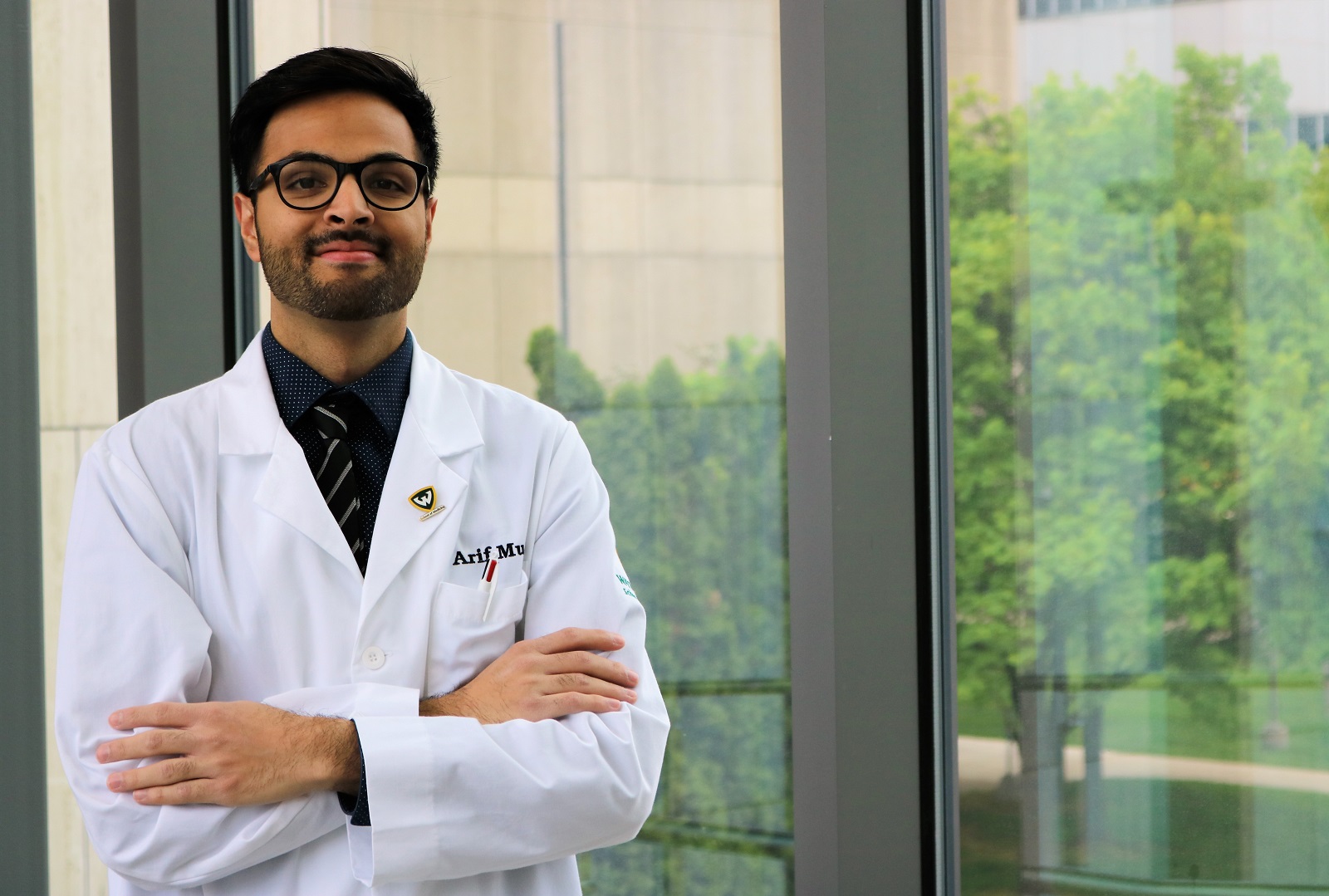A team led by a medical student from the Wayne State University School of Medicine has published a study that reveals how more than 3,000 anesthesiologists in the United States assess and manage patient anxiety before surgery.

The Class of 2022’s Arif Musa led the student team, which included the Class of 2020’s Syed Hussain, M.D.; Class of 2021’s Jahan Tajran; Class of 2022’s Shafi Hamid; and Christopher Cooke, M.D., a Sports Medicine resident at the Detroit Medical Center.
“Assessing and Reducing Preoperative Anxiety in Adult Patients: A Cross-Sectional Study of 3,661 Members of the American Society of Anesthesiologists” is published in the Journal of Clinical Anesthesia.
An abstract of the study was selected for presentation at the 2019 Anesthesiology Annual Meeting, where it was given a Featured Abstract Award by the ASA.
The research team includes faculty from the University of Southern California Keck School of Medicine, University of California Irvine Medical Center and University of California Los Angeles David Geffen School of Medicine.
Musa formed the Spine Preoperative Anxiety Research Taskforce, or SPARTA, in 2016 as a multi-disciplinary, multi-organizational team of researchers to study preoperative anxiety, a phenomenon that often goes overlooked in perioperative care. In 2018, he won the Team Building Award through the Clinical and Translational Sciences Institute, which gave him access to funding from the National Institutes of Health to conduct the research as co-principal investigator. The first SPARTA study that year surveyed spine surgeons of the international organization AO Spine North America, which asked surgeons about their preferences for assessing and reducing preoperative anxiety in their patients.
“We found that the majority of American anesthesiologists assess their adult patients’ preoperative anxiety, discuss it verbally with their patients, and use anxiolytic medication, patient education, anesthesiologist visits and family presence to reduce preoperative anxiety,” Musa said.
Previous studies have shown that 60% of patients experience a significant degree of anxiety before surgery, and preoperative anxiety often predicts anesthetic consumption and postoperative pain strategy.
“Notably, patient anxiety is not routinely assessed by surgeons, who often hold anesthesiologists responsible,” Musa wrote.
In 2019, Musa negotiated a no-cost extension to keep the project funded until 2020. That December, he received second prize in the oral presentation category at the School of Medicine’s first student-led clinical research showcase.
A third study, which surveyed anesthesiologists about reducing preoperative anxiety in the pediatric population, is under peer review. A fourth -- a survey of plastic surgeons of the American Council of Academic Plastic Surgeons -- is underway.
Musa has collected several honors for the project this year. In February, he was awarded the Student Diversity Travel Award from the Association for Academic Surgery for his commitment to academic surgery research with the Student Diversity Travel Award, and in April received the Medical Student Research Fellowship from the School of Medicine’s Office of Medical Student Research and Innovation. That same month he won third place at the Detroit Medical Center QUESST Symposium in the medical student poster presentation category.